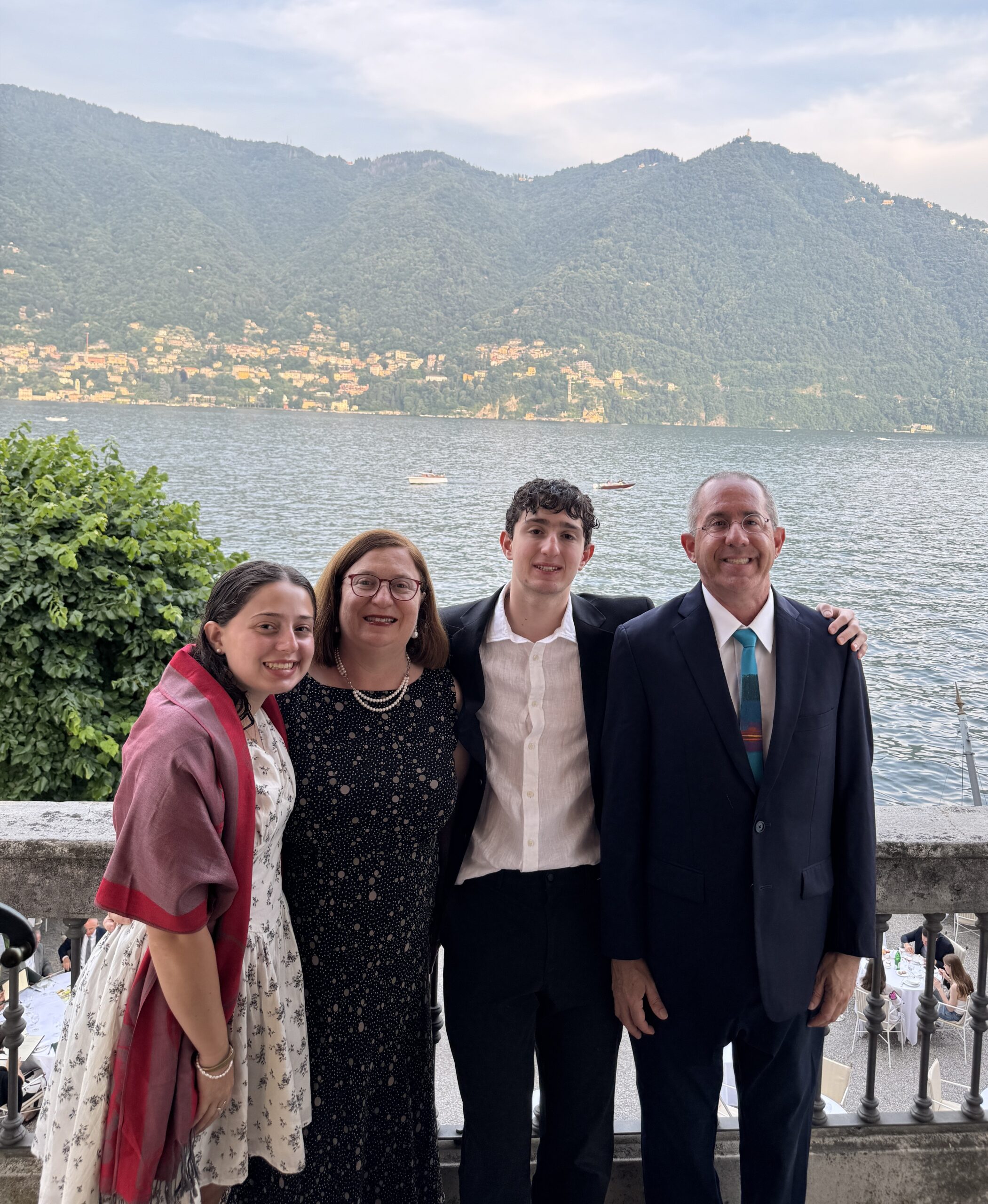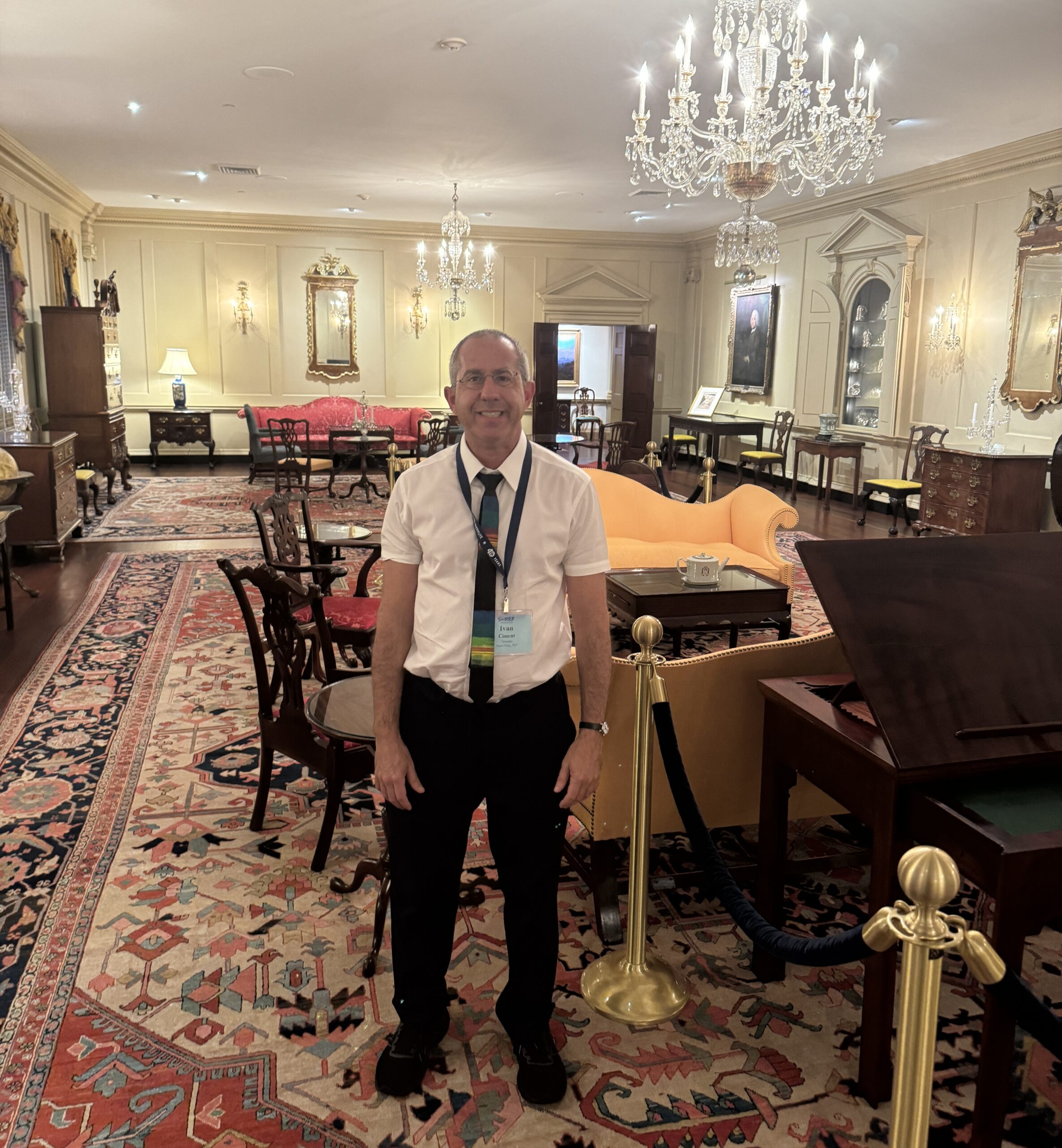That 11,000 extra people in France died during this past summer’s heatwave (so sayeth the French health ministry) helps put some things into perspective. America losing 40 soldiers a month in Iraq is not going to bring the house down, and I haven’t seen a wave of resignations going on this month in France which, despite supposedly having the world’s best health care system, still seems to value its vacations more than its elderly. Best prize for Frenchies who won’t let anything get in the way of their summer vacation goes to the man who was indicted for dumping his elderly father on the doorstep of his brother knowing he was on vacation.
Another really awful statistic I came across this month is that 8% of Americans on any given day are eating at McDonalds. Given that I estimate that 20% of Americans would never eat in a McDonalds, that means there is a sizeable element among the American population that must eat tons of McDonalds.
US Foreign Policy in the Middle East
The Bush Administration confounds analysts who try to keep tabs on whether Powell or Rumsfeld is at the top. Right now it looks like Powell is getting the president’s ear as the administration trots out a shift toward bringing in the UN. And then, after it appears that the UN or diplomacy doesn’t work, Rumsfeld comes back on top. This is a tactical sideshow; the US has been on a learning curve with regard to Iraq and, in my opinion, still doesn’t get it.
One person who does get it is the commander of the 101st Aireborne division, who is pretty much running the show in the Kurdish areas of Northern Iraq. That part of the country is running well and this is because there is good cooperation on the ground between the military commander and the locals who are being given a big say in what gets done; the commander has pretty much been ignoring Washington and the bigshots in Baghdad. It also helps that there is hardly any sabotage taking place in that part of the country.
Paul Bremer is on a learning curve but still trying to run things top down; the Americans are trying to set up Iraqi armed entities under “the US army”, which I think is an intrinsic mistake. Iraqis will not swallow anything labeled US army. They will swallow an Iraqi army, and the US would be smarter to help the Iraqis set up an Iraqi army and try to build Iraqi state institutions, because that is the only thing that in the long run will ensure that the US gets out without this becoming a Vietnamese-like swamp and without Iraq becoming more of a threat than a model for the region.
The UN and the various countries are not going to let the Americans suck them into doing their dirty work in Iraq, but they cannot afford to sit around and suffer the consequences of American failure; the global economy is interdependent. But the UN has some reforming to do; till now it has been an organization that values sovereignty over human rights. Iraq’s Hussein and Zimbabwe’s Mugabe got a free ride from the UN. Countries such as Germany and Japan pay lots of bills and get little say in that organization. The UN was set up in 1945 and still reflects the world of 1945. It has to change in order to be relevant.
There was an interesting article this past weekend in the NY Times Magazine about America’s policy of intervention. The article noted that in the entire history of the US, almost every year one could see that the US was intervening somewhere abroad. The issue is not whether or not to intervene, the question is under what circumstances. It is a tricky issue; if American policy is too cautious, it leads troublemakers to assume that America is weak and that they can strike, which then leads to greater American intervention. No doubt that the Americans wouldn’t have gone into Afghanistan and Iraq were it not for 9/11 which was a byproduct of retreats from places such as Somalia and Lebanon (remember when bombers hit American marines in Beirut leading to a withdrawal). The problem is not American intervention or non-intervention; the problem is a lack of consistency in policy.
This lack of consistency also explains something very relevant today. There is a debate as to whether or not the Arab World wants democracy and whether the Americans should be trying to help establish this. Many people think the Arabs don’t want it because they are so busy hating America. I disagree; I think Arabs know what democracy is and that they want it. Palestinians consistently say they respect the Israeli democratic system and even award it higher ratings than the American system, presumably because they are most familiar with the Israeli system. What the Arabs don’t like is the American foreign policy that says that democracy is fine for the Arabs as long as it leads to results that the Americans want. Otherwise, it is OK for the Americans to overturn the results. That’s what the Arabs hate; it is the feeling that American democracy only exists for Americans, not for them. It is one area of inconsistency of American policy that has the effect of screwing up all of the American efforts at executing a successful foreign policy.
Israel/Palestine
I read a good joke today. Arafat and Abbas are driving in a car and Arafat sees a tree in the road and yells to Abbas to avoid the tree. His warnings get more hysterical until finally the car hits the tree. The two, exhausted, are limping away from the car. “I told you about the tree,” says Arafat. “But you were driving,” says Abbas.
These days people are in mourning over the death of the road map and the resignation of Abbas. I never expected much from it or him from the very beginning and said so. The road map was doomed because it (despite its nickname) like the Oslo accord never gave either side any definitive vision of an endgame and how to get there. It was all process-oriented, and it assumed the fiction that Abbas would negotiate and condemn terrorism, Hamas would terrorize, Arafat would pull the strings and do everything possible to subvert Abbas, Sharon would move roadblocks and caravans from one side of the road to the other, and everyone would wink and nod. As I’ve said, two things have to happen in order for anything else to happen. One of them is happening: Sharon is going after Hamas leadership and, if he had used a 1 ton bomb instead of becoming more shy about it since last year’s fiasco, he would have dealt them a decisive blow this past weekend by knocking off Sheikh Yassin and a good number of their leadership in a summit two floors below where the bomb hit. Sharon was evidently stung by the resignation of Ephraim Halevy, his head of the national security council and former Mossad chief, who came out and said that Sharon is not really running the country nor does he have any idea of where to go. The second is that, despite the popular wisdom, in my opinion the Israelis have to permanently erase Arafat from the world. Beyond that, the Israelis cannot change Palestinian society and save the Palestinians from themselves any more than the Americans or the Jews can save the Israelis from themselves. Clearly, moderate Palestinians need and want the Israelis to knock off the Hamas and PA mafia which is preventing them from making any progress, and that much the Israelis have to do for them. The rest is up to them. If they, along with sectors of Iraqis want to go around killing each other and dooming their civilizations to endless states of war, there is not much anyone else can do to stop them. It is bad that the Americans are not doing a good job of securing Iraq, but it is even worse that the Iraqis have a good number of people more interested in sabotaging Iraq for their own personal benefit than in rebuilding it. It is not just foreign troublemakers in Iraq; it is also Iraqis of various interests that are intent on destabilizing the country because they hope to profit from it.
Over the long term, Iraq will work out. Slowly but surely it will work, in spite of the Americans. As for Israel-Palestine, it’s going to be a rather hot winter with a very tough offensive by the Israelis to finish off Hamas if possible; in their minds and based on the past ceasefire, the best they can get from Hamas is a ceasefire which will be used to retool for the next round of hostilities. The Americans are really not in a position to object, given their own problems keeping the peace over their own occupation of Iraq. Maybe the Israeli hotels will lower their prices by the time Passover comes; after 2 months of quiet this summer, the hotel managers became overconfident and raised their prices 50% for the upcoming season. Frankly, the prices are ridiculous (a suite at a nice hotel in Jerusalem is roughly the price of a honeymoon suite on the Amalfi coast, and the two are not equivalent properties) and I wouldn’t mind if they became a bit less arrogant.
Sharon is a bit of a wildcard; he has a scandal around him that can bring him down, but the country knows he is the only game in town. As long as there is a chance of peace, they will hold their noses and keep him in the leader’s chair. Which means that Sharon wants there to be a sense that without him there cannot be peace, but at the same time he doesn’t want to make real decisions that alienate his power base. This is not new; it is the same old game and it is pretty much the same with Arafat. The charade is lost on nobody, but everyone is still stuck in the circle without a chair.
A recent meeting in Canada turned up an interesting fact: Hamas is more a Sunni than a Shiite organization. If so, this means that at a certain point Hamas only has a certain amount in common with the Iranians; it also explains why so much of their funding comes from Saudi Arabia.
Economy
The American economy is turning around and there is a slow recovery. I see indications of increased business. However, jobs are not being created yet, and the housing market is set for a fall. A top mortgage broker went bankrupt after being caught in the squeeze of interest rates going up very quickly last month. A major home construction company this week announced a 13% reduction in personnel. Many home mortgages did not close because of the rise in interest rates. There are major pressures on the US dollars to drop against the euro, despite the recent gains. The dollar is being subsidized to some extent by the Chinese and the recent calls for the Chinese to devalue the yuan is BS because it would actually make things very difficult for the US in the short term if the Chinese did so. People who bought into indexes a few months ago on my advice did very well for themselves. Personally, I am in a marriage year and have not bought anything and I am uncomfortable watching my friends become rather exuberant again about the state of tech stocks. I think the market cannot sustain these prices and caution against individual companies and figure that the markets themselves will probably fall into the 4th quarter as tensions concerning the US dollar, the national budget deficit and the housing markets (and consumer spending which will be affected as home values are squeezed despite recent gains in indexes of consumer confidence) make their inevitable dent in capital markets. Recall that last time interest rates went up as they did, it took 18 months for real estate markets to react. So I fully expect that sooner or later this real estate bubble (which I have been warning about for the past year or so – see my article dated 22 March 2001) to burst even if it has been taking longer than I originally thought. Remember though that the stock market didn’t crash in a day in 2000 and that after it spent a year going down 50%, it spent another year going down another 50%, so patience is a virtue here and 1% on your CD is not necessarily a losing proposition nor is not buying a house if you believe it costs too much.
Bush’s Re-Election Prospects
What about Bush’s re-election? Pretty simple here. The Democrats have nobody worth the fight. The terrorists will strike again in the next year on US soil hoping ostensibly to make Bush look like a failure. As per Israel’s Sharon, it will drive the population into the arms of Bush. Besides, I’m not sure that Osama bin Laden is unhappy with the direction in which the world is going. The US is pulling out of Saudi Arabia, the Arab world still hates America, and every jihadi and his goat is heading toward Iraq and Afghanistan to pick up a sword and fight America. I heard this past April he hosted a terrorism summit with 5,000 people in attendance. I’d like to know if the CIA was also there and, if not, why didn’t we bomb the 5,000 people there or did we not get an invitation?
Montreal Travel Advice
Here is some travel advice regarding Montreal, a fairly good shopping and fun town roughly an hour’s flight from New York. 50 Minutes on Delta from Laguardia to Montreal Dorval airport; 20 minute drive to town normally, but allow 35 minutes during rush hour. 10 minute walk from gate to passport control (escalators were broken but there is an elevator) but expected to get better when new terminal is finished next year. Taxi is $20 fixed to/from airport. Le St. James hotel is located between Old Montreal and the Downtown areas and is an excellent 60 room boutique hotel; only 5 star hotel in Old Montreal in a converted bank building opened a year ago; very good food and beverage (and a lovely dining room) and personalized service with a good health spa. We knew names of staff people by name by the end of the weekend. Junior suite was about $325 a night; manager is William Dagher (514.841.3111). Rooms are a bit dark and have no views but it is a good hotel. The Intercontinental is a block away; the Loews Hotel Vogue is a block from Holts Renfrew department store and is about $200 per night.
A nighttime walk around Old Montreal found it pretty deserted although it had been raining that evening. But a night walk on Crescent Street closer to center city found it much more happening. Saturday walk around downtown; world film festival in progress. Window shopping; Ogilvy’s a nice store; also Holt’s Renfrew. Looked at winter coats; Mayor Street has many such stores; also Alexanders on Peele Street. Several department stores have closed over the years (Eton and Simpsons). Prices of things such as fine china and dishware (ie: Haviland and Vileroy and Boch) are quite more expensive here than in NY, at least in the big department stores; food and services and presumably furs are cheaper. Early evening walk along the Old Port and the Old City to City Hall and nearby parks. Hotel is 3 blocks from the Notre Dame Cathedral. There is a Movenpick Marche at Rue University & Rue Cathcart and it remains my favorite evening out concept; would probably be fantastic as a franchise in a Gulf country.
Sunday brunch at Ritz Carlton garden with ducks, accordionist and lovely buffet. Too bad we couldn’t eat the baby lamb chops looking so succulent and rare. They said they had no seats, but you can get seated anyway and there were plenty of empty seats. A bit of walking along St. Catherine and Sherbrooke Streets, taxi ride up Mount Royale for city views and then return to New York City via the airport where you preclear customs before boarding the flight. You can get the tax refund form (ie: for tax on hotels) via the internet if you forget to pick it up.
On my way out today for another quick 12 day tour of spots in Europe and Asia; will be flying Alitalia and Cathay; definitely not a good day today to be flying American carriers, eh?





